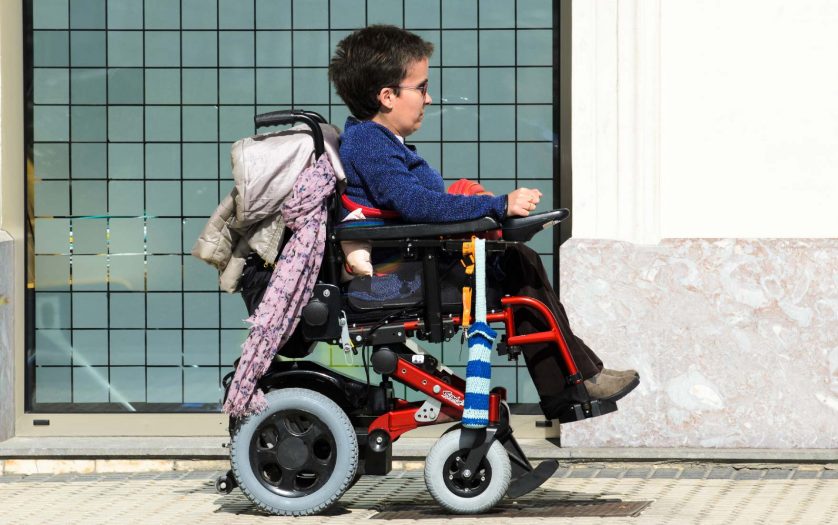
Martin Hoffman, head of Australia’s National Disability Insurance Scheme, is being grilled over why participants are being asked “insulting” and sexual questions.
Dr George Taleporos, an NDIS participant who sits on a Victorian disability advisory board, said last month he had been asked about his sex life as part of a independent assessment, used to determine the level of support needed and funding package to be provided.
Asked about the case at an NDIS parliamentary committee hearing on Tuesday, NDIA chief executive Martin Hoffman said the question was “one small part” of one of the assessment tools that have been “used in the scheme since the start.”
However, Hoffman said the agency was learning from an ongoing trial of the assessments how such questions could be “used appropriately” and “sensitively.”
People should have the option about talking about that,” he said. “So we’re looking at the way and extent to which, consistent with the tool, those questions are optional, and may not be raised at all.”
Taleporos, who is one of 3,000 people who have taken part in an assessments trial, told the Drum last month he had “just met this person and they asked me about whether I need support to have sex.”
The government has sought to ban NDIS participants from being approved to use funds to access sex therapy and sex work services, following a federal court ruling that found it was allowed in certain specific circumstances.
Under a complete revision to the scheme, NDIS participants and applicants would undergo an interview with a government-contracted allied health professional instead of submitting reports from their own treating specialists.
The disability community is concerned the assessments will be carried out by a stranger, which Hoffman acknowledged was to combat the “empathy bias” of people’s own doctors and therapists.
Hoffman was also quizzed by the Liberal senator Hollie Hughes about the design of the assessments. She said she was aware of adults in their 20s with autism being asked “can you take the bin out?” during the trial.
“These kids don’t want to take the bin out. They can take the bin out, but they want to participate economically and that’s their goal,” said Hughes, who has a child with autism.
“But the goal was never discussed, there was like a tick a box that they could make themselves a meal, they could independently dress and shower.”
Hughes said the assessments should consider a person’s goals, not just “tick a box.”
Hoffman said the agency was looking to “understand the capabilities and therefore the support needs of the person.”
“Once that’s established, then we get a fair funding package,” he said. “We then start talking about how to use that to pursue the individual’s goals, which may well involve the desire for education, or desire for employment. That’s the point at which that happens.”
People with disabilities have previously warned the “yes or no” questions were too blunt and could not accurately capture a person’s needs.
Hoffman acknowledged that the independent assessments proposal had “caused real fear, concern and upset in the disability community.”
“I deeply regret that our genuine attempts at communication and consultation have evidently not to date been sufficient or appropriate,” he said.
